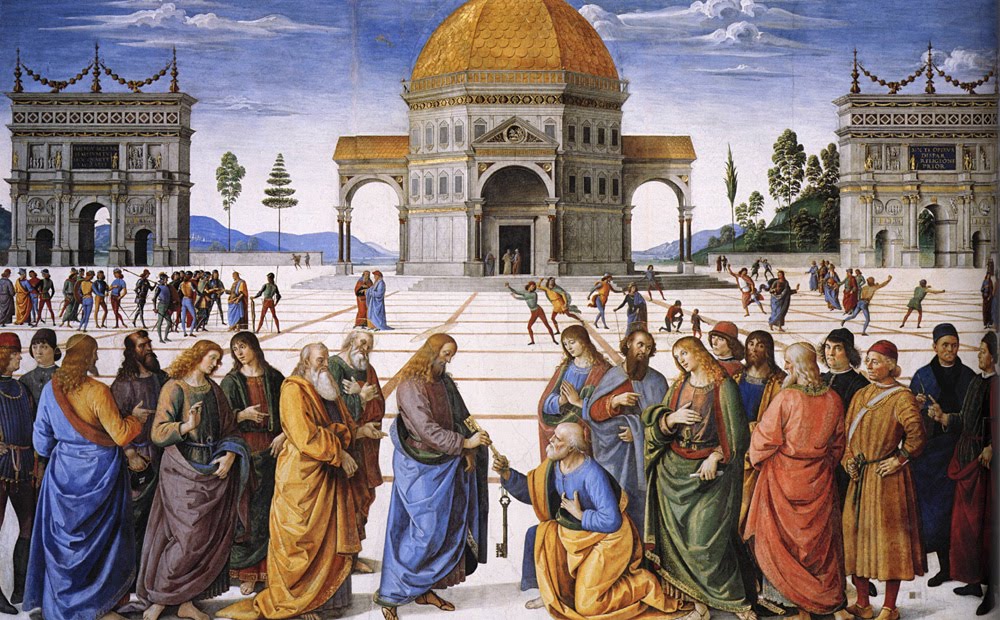|
Now that I've finally graduated with an M.Div., I can do one of two things—one being read the books I was supposed to have read in seminary, and the other being read books I never would have read in seminary. I have chosen the latter for now. Down the road I'll get to reading books from actual courses.
Most recently I finished a book call Born Fundamentalist, Born Again Catholic by David Currie. I know that there is a fair amount of thought and behavior that may not outright say it, but many Protestants have a difficult time understanding Roman Catholic teaching (or have yet to research it for themselves and are relying on hearsay and essentially playing a middle school game of "telephone"). What peaked my interest is that I've never heard a Protestant say, "I get where they're coming from." Why is this? Is the schism so great that conversation is a moot point? Or are we truly saying two completely different things? It's been said that there are two types of disagreements: disagreements about words and disagreements about things. When we disagree about words, the essence of the two sides is similar enough to warrant ecumenism. Take for instance the Protestant use of the word "devotion." When a Protestant has a devotional, she means that she read her bible in her office for 15 minutes and said a prayer. The world is better off because people do this consistently. When a Roman Catholic practices devotion, it is something radically different from the Protestant definition. However, when a Roman Catholic "prays," they essentially align well with the Protestant definition of "devotion." However, disagreements about things rarely offer any talking points. One area that does not have much hope of reconciliation between Protestants and Catholics is the veneration of the saints. Protestants refuse to believe that worship and veneration are distinct in terms of practice. Though the Catholic Catechism stresses that God alone is worthy of worship, Protestants look at the methods of practicing veneration and cry out for repentance on behalf of the recalcitrant Catholic. Currie begins his work by stating that this book was written as a means of explaining his unexplainable move from Fundamentalist Evangelicalism to Roman Catholicism. He was (and appears to continually be) critiqued by his former family, friends, and associates for defecting. After giving the highlights of this period of introspection and discernment in chapter one, he moves on to give a popular understanding of the areas that have separated Protestants and Catholics for centuries. Even though his prose is quite readable and logic easily understandable, he has definitely put in the hours of work necessary to have a firm hold on the paradigm shift that took place for him and his family (yes, his entire family "reconciled," as he puts it; he did not force himself or leave his family behind). While Protestants might vehemently disagree with his conclusion, Currie portrays the Roman Catholic church and its doctrines in a hopeful light. He maintains through the entire work that the doctrines that separate have simply been misunderstood; anyone reading the teachings of Catholicism could not help but be swayed. While I appreciate his sympathetic tone for Evangelicals, he seems to have had an experience of Evangelicalism far different from mine. He portrays the general Evangelical public as nothing but cruel to those professing allegiance to Rome. But, it does bolster his temper—"If they just understood where all this came from!" he cries. My experience in both an Evangelical Methodist church and a Baptist church does have similarities, though. Catholics seem to regarded as second-class Christians if they be deemed Christians at all. However, if you ask a typical layman about the things that we do share in common, there is a fair chance you'll be given a reply of silent ignorance. This is not to say that Catholics are well-versed in Evangelical theology. I think we do, though, have some talking points on justification, salvation, and yes, even faith and works. I would encourage my Evangelical friends and family to shore up your knowledge of Roman Catholic belief and practice. Disagreement will inevitably happen, and reconciliation will not always be even remotely possible. However, let's leave ignorance for the pagans.
1 Comment
|
Archives
March 2024
Categories |


 RSS Feed
RSS Feed